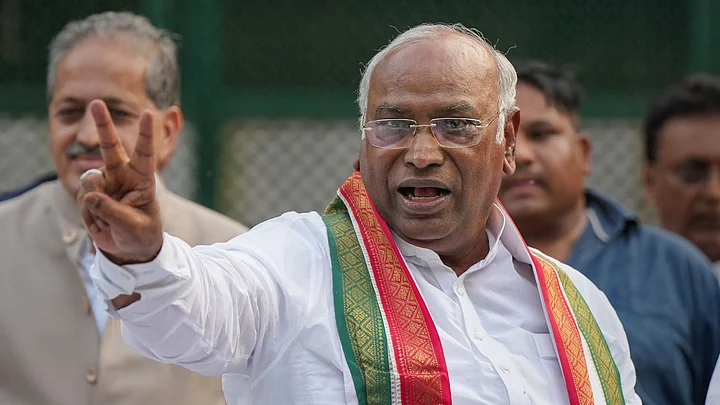Former Congress presidents Sonia Gandhi and Rahul Gandhi arrived at the plenary session event in Raipur, Chhattisgarh on Friday, 24 February.
The Gandhis had skipped the first meeting of the steering committee, which had decided against holding elections to the Congress Working Committee, the highest decision-making body of the party. The steering committee decided to empower party president Mallikarjun Kharge to nominate members to the CWC.
This piece will look at three aspects:
Who opposed it and who supported it?
How are various delegates attending the party plenary reacting to the steering committee's decision?
What would be the consequences of this decision?
Who Opposed and Who Supported the Decision to Not Hold CWC Polls?
While Congress' communications' in-charge Jairam Ramesh said that the decision to empower the party president to constitute the CWC was unanimous, a source privy to what happened said that there were some leaders who wanted elections to be held.
According to the source, the most prominent among those pushing for elections were Digvijaya Singh, Abhishek Manu Singhvi and Ajay Maken.
Among those who spoke out against holding elections were Ashok Gehlot, Mukul Wasnik and Anand Sharma.
Sharma and Wasnik's opposition is particularly curious since they were both part of the 'G-23' or the group of 23 leaders who wrote a letter to Sonia Gandhi demanding greater democracy within the party.
What do AICC Delegates Say?
The decision evoked mixed reactions from the delegates attending the plenary session.
Speaking to The Quint, a 32-year-old delegate said that not conducting CWC elections is a mistake.
"When one person will nominate the members of the top decision making committee, there is a scope of things getting diluted and confused. There should have been an election as it would have opened doors for some new members, some young brains to represent people like us".
The leader further said that the party has missed an opportunity to do things differently and instead chose the path of status quo.
"It would have really been a big thing, some new faces would have come in and brought new ideas and news ways to counter the BJP. But it won't happen now".
Another delegate from a southern state told The Quint that had the Congress decided to hold elections, it would have been welcomed by people from all walks of life.
"I come from South India. We love Rahul Gandhi. But we are a bit sad that the (CWC) elections are not happening. We thought that the elections would help the party get a complete rejuvenation," the delegate said.
However, the delegate is confident that senior party elders will choose a strong and empowered committee.
There are many delegates who support the party's decision as well.
"We have elected our president and now he can appoint members to the top committee. The party leaders at the top level are experienced and we support their decision. We should now focus on the elections and how to counter the hatred spread by the BJP," one delegate told The Quint.
A subject committee is going to discuss proposals approved by the steering committee on aspects like increasing the quota of women in the CWC.
Amendments to 16 articles and 32 rules of the Congress' constitution have also been proposed and would now be discussed at length in this meeting.
What Will be the Consequences of a Non-Elected CWC?
The justification for not holding elections to the CWC are many - from avoiding divisions in the party, to ensuring adequate representation for women, youth and people from marginalised communities.
It is quite likely that the newly constituted CWC will check all these boxes.
However, it also seems that a great deal of control is likely to be exerted by Congress president Mallikarjun Kharge and former president Rahul Gandhi.
It is well known that Kharge and Gandhi are on the same page on most issues and this is likely to be reflected even in the CWC choices. As it is Gandhi's position in the party has become a lot stronger following the Bharat Jodo Yatra.
It is also interesting that the fate of the remaining G-23 members will now be in Kharge's hands. Sources say that none of the G-23 members in the steering committee pushed for elections in a strong way, despite their earlier demand for elections to the body.
Probably some of them may have felt that they have a better chance of being accommodated by president Kharge than in an election among AICC delegates, many of whom could hold the G-23 letter against them.
